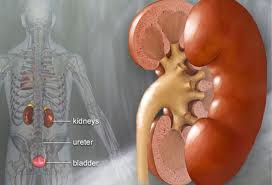Kidney stones or renal lithiasis are little, solid deposits that produce inside the kidneys. Acid salts and minerals are what kidney stones made of. Kidney stones develop when the urine turn out to be concentrated letting the minerals to crystallize and attach together. The passing of kidney stones may cause severe pain that usually begin in the side or back beneath the ribs and progress to the lower part of abdomen and groin. The discomfort may alter as the kidney stone may travel throughout the urinary tract.  Generally, kidney stones do not bring significant damage. Treatment is frequently not needed in person with kidney stones. Intake of plenty water and medication for pain are the ways considered necessary for person with kidney stones. On the other hand, if the kidney stones are persistent treatment may apply to prevent it from recurring. There are ways of kidney stones prevention and treatment that can be helpful to the person affected with it.
What are the symptoms of kidney stones?
Signs and symptoms of kidney stones may manifest once the kidney stones has progressed in the ureter, the tube which links the kidney and the bladder. These signs and symptoms may include the following.
- Extreme pain in the side and back, just under the ribs
- Discomfort that reach the lower abdomen and groin
- Discomfort during urination
- Pink, brown or red color of urine
- Nausea and vomiting
- Frequent urge to urinate
- High fever and chills if there is an infection
What are the causes of kidney stones?
There are a lot of factors to be considered why kidney stones develop. Kidney stones form once the fluid, mixture of minerals and acids of urine are not balance. When this takes place, the urine will have more crystal-forming materials like oxalate, calcium and uric acid than the fluid. There will be also an absence of substances that will keep the crystals from bonding together until it develops into stones. This may builds a setting of the possibility of formation of kidney stones.
What are the risk factor affecting kidney stones?
There are factors that may enhance the risk of formation of kidney stones and these include the following.
- If one of your family members has kidney stones, there is more possibility that you will have kidney stones, too.  If in case, you’ve previously had one or more kidney stones there’s still a tendency of developing a new one.
- Person with 40 years of age and above are more likely to have kidney stones, although kidney stones may take place at any age.
- Men are more prone to have kidney stones than women.
- Intake of inadequate amount of water may enhance the risk of having kidney stones. People who stay in places with warm climate and people who heavily sweat should have to drink more water.
- Intake of foods that’s high in protein, high in sodium and sugar content may increase the possibility of kidney stones.
- Obesity or being overweight has also possibility of developing kidney stones.
- Digestive surgery and digestive disorder like chronic diarrhea may cause alteration in the digestive process that can have an effect on the absorption of calcium and enhance the intensity of stone-forming materials in the urine.
- Illnesses and other health conditions like renal tubular acidosis, hyperthyroidism and certain urinary tract infections may enhance the possibility of kidney stones.
What are the kidney stones prevention and treatment?
The following ways can be very helpful to lessen the risk of kidney stone.
 1.    Intake of water all through the day.
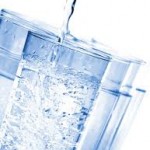 Increase the intake of water throughout the day especially to those people who had a history of kidney stone. Doctors normally advises passing of urine for 2.5 liters or 2.6 quarts in each day. The doctor may request you to measure the amount of urine you produced just to make sure if you have adequate intake of water.
Increase the intake of water throughout the day especially to those people who had a history of kidney stone. Doctors normally advises passing of urine for 2.5 liters or 2.6 quarts in each day. The doctor may request you to measure the amount of urine you produced just to make sure if you have adequate intake of water.
2.    Eat fewer foods rich in oxalate.
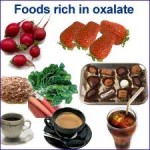 Avoid foods rich in oxalate for it only aggravates the formation of kidney stone. Some of the foods rich in oxalate are beets, rhubarb, okra, spinach, sweet potatoes, chocolate, and tea and soy products.
Avoid foods rich in oxalate for it only aggravates the formation of kidney stone. Some of the foods rich in oxalate are beets, rhubarb, okra, spinach, sweet potatoes, chocolate, and tea and soy products.
3.    Prefer a diet low in salt and animal protein.
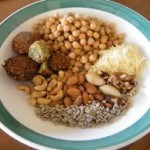 Lessen the amount of salt you eat and prefer non animal protein sources like legumes and nuts. This will lessen the risk of kidney stone.
Lessen the amount of salt you eat and prefer non animal protein sources like legumes and nuts. This will lessen the risk of kidney stone.
4.    Maintain the diet rich in calcium.
 The intake of calcium-rich foods does not have an effect in developing kidney stones. You may keep on eating calcium-rich foods unless your doctor advises you to stop. Consult also your doctor before taking any calcium supplements for these have been related to enhance the developing of kidney stones.
The intake of calcium-rich foods does not have an effect in developing kidney stones. You may keep on eating calcium-rich foods unless your doctor advises you to stop. Consult also your doctor before taking any calcium supplements for these have been related to enhance the developing of kidney stones.
Treatment for kidney stone may depend on the type and the cause. The following are the treatment for small stones with least symptoms.
1.    Drink a lot of water.
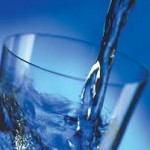 Drink water of as much as 1.9 to 2.8 liters or 2 to 3 quarts in each day to facilitate the flushing away the urine.
Drink water of as much as 1.9 to 2.8 liters or 2 to 3 quarts in each day to facilitate the flushing away the urine.
2.    Pain relievers.
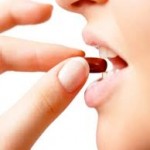 Your doctor may prescribe pain reliever in the presence of discomfort when passing a small stone like ibuprofen, naproxen sodium and acetaminophen.
Your doctor may prescribe pain reliever in the presence of discomfort when passing a small stone like ibuprofen, naproxen sodium and acetaminophen.
The following are the treatment for larger stones causing symptoms.
1.    Sound wave procedure
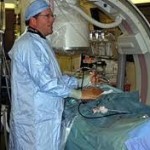 This procedure is called extracorporeal shock wave lithotripsy that uses sound waves to be able to produce strong vibrations called shock waves that rupture the stones into small pieces followed by passing in the urine. This procedure produces loud sound and can cause slight discomfort, use of light anesthesia may require making you at ease.
This procedure is called extracorporeal shock wave lithotripsy that uses sound waves to be able to produce strong vibrations called shock waves that rupture the stones into small pieces followed by passing in the urine. This procedure produces loud sound and can cause slight discomfort, use of light anesthesia may require making you at ease.
2.    Surgical procedure.
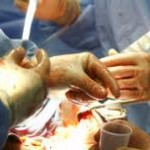 This procedure called percutaneous nephrolithotomy which eliminate surgically the kidney stone through a small cut in the back. This procedure is advisable if the extracorporeal shock wave lithotripsy has not been successful and if the kidney stone is very huge.
This procedure called percutaneous nephrolithotomy which eliminate surgically the kidney stone through a small cut in the back. This procedure is advisable if the extracorporeal shock wave lithotripsy has not been successful and if the kidney stone is very huge.
3.    Use of ureteroscope.
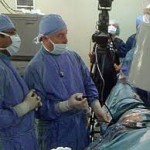 Another procedure that may remove kidney stone is by using ureteroscope, a thin lighted tube. The doctor may pass this scope with a camera through the urethra and bladder to the ureter. The doctor may maneuver the ureteroscope to the stone. When the stone is already sited, there is a special tool that can capture the stone or smash the stone into pieces that will pass in the urine.
Another procedure that may remove kidney stone is by using ureteroscope, a thin lighted tube. The doctor may pass this scope with a camera through the urethra and bladder to the ureter. The doctor may maneuver the ureteroscope to the stone. When the stone is already sited, there is a special tool that can capture the stone or smash the stone into pieces that will pass in the urine.
These are all the kidney stones prevention and treatment that may be very helpful in reducing the risk and in removing kidney stones. Do not hesitate to consult your doctor of the treatment that may be applicable to your present condition.
